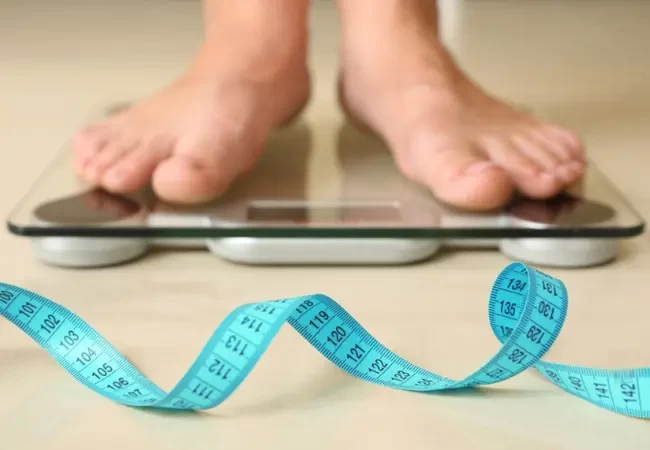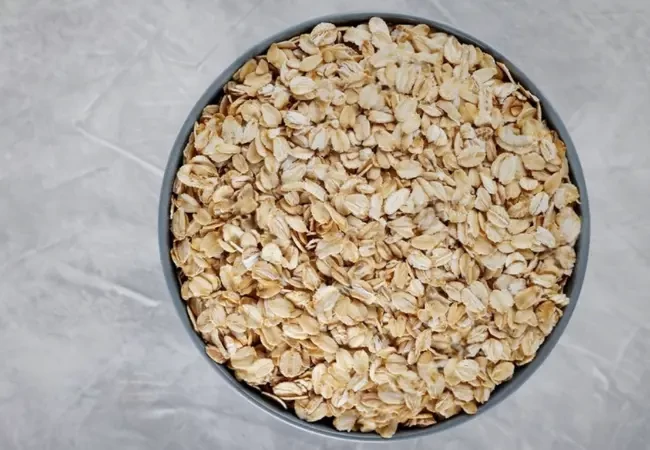Blog
Best Dinner Time
to Lose Weight

Why Overweight Individuals Should Embrace Early Dinners
 Medically reviewed by: Dr. Tom Babu, Consultant Diabetologist & Endocrinologist - Written by Riya Yacob - Updated on 14/05/2025
Medically reviewed by: Dr. Tom Babu, Consultant Diabetologist & Endocrinologist - Written by Riya Yacob - Updated on 14/05/2025Ever feel heavy and sluggish the morning after a late-night dinner? Many of us eat our biggest meal late in the evening after 9 or even 10 PM. But what if this one habit is silently making weight loss harder? If there is a tip we would like to give to overweight individuals, it would be to have dinner as early as possible after sunset. Eating late at night may affect how your body burns fat, balances hormones, and even manages blood sugar. In this blog, we will discuss why early dinner is good for health, the link between early dinner and blood sugar control, as well as how early dinner helps in weight loss.
How Early Dinner Helps in Weight Loss
Weight loss doesn’t have to start with extreme workouts or giving up all your favourite foods. Sometimes, it just begins with timing. And if you are all into losing weight, the best thing to do is to consult a specialist.
If you eat dinner early, around 7 pm, your body will get enough time for digestion, processing, and burning calories before you sleep. It helps your body shift into fat-burning mode overnight, especially when paired with a natural fasting window.
Over time, this can lead to reduced belly fat, improved metabolism, and better energy levels. Yes, something as simple as shifting dinner by an hour or two can work wonders.
Why Early Dinner Is Good for Health
There’s a reason your grandparents always had dinner by sunset. According to some reports and studies, our digestive system works best when the sun is up. The following are some reasons why early dinner is a smart health move:
- Your body gets sufficient time to break down food before getting to bed. This is very important to ensure better digestion.
- Sleeping on a full stomach can cause bloating and disturbed sleep. This can negatively affect the quality of your sleep. If you choose to eat your dinner early, you can prevent this and ensure better quality sleep.
- Eating early helps balance insulin, ghrelin, and leptin. All these are the hormones responsible for hunger and fat storage. This way early dinner can pave the way to stable hormones.
- The liver and other organs perform their cleanup functions better at night when they aren’t busy digesting food. This can be considered a natural detoxification process.
Early Dinner and Blood Sugar Control
Early dinner is important if you have diabetes or insulin resistance. Late-night meals can cause blood sugar spikes that last through the night. This interferes with both insulin function and fat metabolism.
But when you eat earlier, your body gets time to stabilize glucose levels before bed. This reduces the risk of morning sugar spikes, making it easier to manage weight and blood sugar in the long run.
That’s why so many studies now connect early dinner and blood sugar control with a lower risk of Type 2 diabetes and metabolic syndrome.
Conclusion
Eating dinner early is a great start, but adding a few small changes can really make a difference. Think about keeping your evening meals light. Something like a bowl of soup, a simple salad, or even some grilled veggies or dal with roti. It helps you feel satisfied without feeling too full. Try not to snack after dinner either. Giving your body a break from constant digestion is more important than we realize. A short walk, just 10 minutes after your meal, can help your body process food better. And if it is practicable for you, try to make a routine of going to sleep by 10.30 PM. That’s when your body does its best repair work and hormone balancing. Oh, and don’t forget to drink enough water during the day. In addition to keeping everything running smoothly, it also keeps your metabolism good.
If you're not sure about where to start, Silverline Hospital can help. Our expert team brings years of expertise in bringing nutrition plans based on your lifestyle, body type, and health needs. For adopting a gentle, guided, and personalized approach to weight loss, get in touch with Silverline Hospital.

More Blogs
-

Sudden Erectile Dysfunction: It's More Than Just Hormones
Experiencing sudden erectile dysfunction? It could signal deeper health issues beyond hormonal imbalance.
-

Oats Are Also Carbohydrates: Here's Why Protein-Based Foods Are the Better Choice
Think oats are healthy carbs? Discover why protein-based foods are a smarter choice for sustained energy and balanced nutrition.
-

How Vaccines Help Protect Diabetics From Infections
Discover how vaccines protect diabetics from infections by boosting immunity and preventing serious complications.
-

Vaccinations for Diabetics: Flu, Pneumococcal, Tdap & More Explained by Experts
Stay protected with the right vaccines. In this expert-led guide, learn why flu, pneumococcal, Tdap, and other vaccines are essential for people with diabetes.
-

Struggling with Erection or Early Ejaculation? Here's How to Get Help
Struggling with erectile dysfunction or premature ejaculation? Learn common causes, treatments, and how to seek professional help with confidence.


 Home
Home  Booking
Booking
 Chat Now
Chat Now  Call Us
Call Us